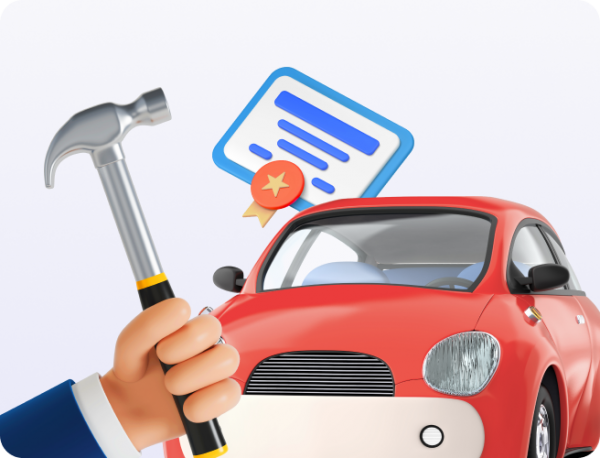Sep 07th, 2023
Claiming on Your Car Loan – Can You Do It?
.jpg)
Can I claim my car loan as a business expense? This is a question that we get asked a lot. There are many factors to take into consideration when answering this question… and it’s important to get it right. According to Savings.com.au, car expenses make up as much as 40% of an annual tax return. Since we’re coming up to the end of the financial year, let’s put our foot to the pedal and drive into some information on business expenses for work vehicles. We’ve taken the key information that you need to know to answer the question above (and more) from the guidelines presented by the Australian Taxation Office (ATO) around work vehicles claims. So, buckle up and get ready for a wild (tax-filled) ride.
What is a work vehicle?
The first thing to consider for your business come tax time, is what you can claim as a work vehicle. Essentially, as long as your vehicle is owned, leased or under a hire-purchase agreement and can prove the vehicle is being used (or predominantly used) for work purposes, then you should be able to claim on it. But just to clarify, for income tax purposes a work car is a motor vehicle (which includes four-wheel drives) that is designed to carry a load of less than one tonne and fewer than nine passengers. However, other vehicles that are outside of the ATO’s car definition parameters can also be used for work purposes including motorcycles and larger vehicles such as utility trucks, panel vans and minivans.
If you are in a company or trust business structure, you will also be able to claim on any work vehicles provided to your employees or their associates in line with their employment.
To answer the initial question from this article, there are sections of your car loan that you can claim back for work expenses. For example, certain loans such as a standard car loan or chattel mortgage mean that you can claim the interest component of your repayments, whereas other options, like a commercial hire-purchase, means that you also claim the GST component. Even though you can’t claim the full loan amount (damn!), you can claim a lot of other components of your vehicle use, such as maintenance, insurance cover premiums, repairs and servicing, fuel and oil, registration and depreciation.
Another way you can claim on your work vehicle, is through the current tax depreciation incentives offered as an increased instant asset write-off. For most work-related vehicles (with the exclusion of vehicles modified for use by people with disabilities), there is a car limit of $59,136 for the 2020–21 income year and $60,733 for the upcoming 2021–22 income year. Furthermore, like most tax deductions, you can only claim the percentage that the vehicle is used for business use. Find out more HERE.
If you’re an employee with a work vehicle, you can make the same claims for your work vehicle during the times that you’re using it for work purposes. These include things like carrying tools and equipment, travelling to and from an alternative workplace (think a client’s office, meetings, business events, or separate workplaces that you are employed at).
If there’s one thing that’s certain in life, it’s that the ATO love you to keep your receipts, documents and information to back up your claims. As far as they’re concerned, if you can’t prove it, it didn’t happen. Therefore, it’s a must to keep evidence for car-related expense items such as fuel receipts, mechanic visits tax invoices, registration payments and loan payments/documents. If you’re an employee, you can either keep these documents as you require them or work out an average amount that you use your vehicle for work-related purposes with a logbook. Find out more HERE.
What Next?
Although you can’t claim your whole car loan on your annual tax return, there are many reasons that you may want to purchase a new work vehicle before the end of the financial year. If you find yourself looking to purchase before 30 June and need finance, then make sure you contact the team at Rostron Finance.
Rostron Finance has a wide range of facilities available to find the right product for you, regardless of if your purchase is for a personal or business vehicle, new or used, or purchased through a dealership, private sale or car auction, they will be able to help make the process seamless.















